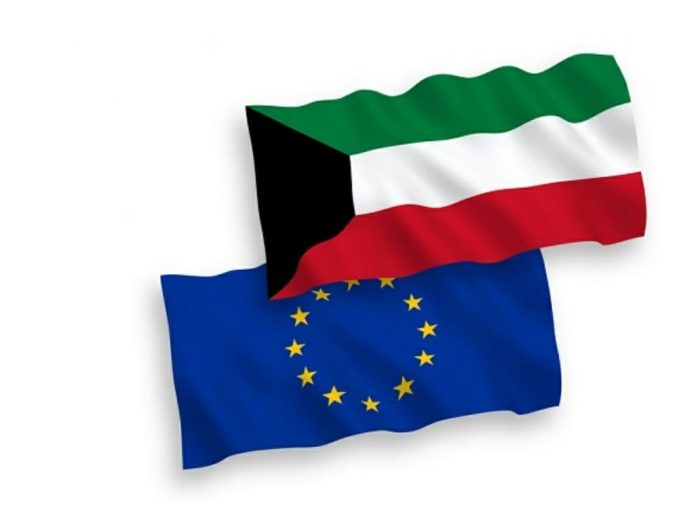By Ryszard Czarnecki,
Member of EU parliament
The European Union (EU) shares a strong and cordial relation with Kuwait. Kuwait was the first Gulf Cooperation Council (GCC) country that signed a Cooperation Arrangement with the EU and this has since been the cornerstone in the bilateral relations between the two sides. This Cooperation Agreement paved the way for regular dialogues and meetings between the two sides and discussions on various areas such as trade, investment, economy, human rights, security, humanitarian assistance, cooperation and development.
In 2019, the EU opened a diplomatic mission in Kuwait. The EU regards Kuwait as a key strategic partner in the Middle East and also an important ally in humanitarian missions across the region. Kuwait and the European Union have co-hosted in the past international donor and relief conferences for Syria, Iraq, and the Rohingya people.
In continuation of the regular discussions and dialogues taking place between the EU and Kuwait, a European Parliament’s (EP) delegation for relations with the Arab Peninsula (DARP) traveled to Kuwait City on 3-4 November 2021 in order to hold the 10th Inter-parliamentary meeting (IPM) EU-Kuwait.
Apart from myself, the delegation comprised Sven Simon (European People’s Party, Germany), Ismail Ertug (Progressive Alliance of Socialists and Democrats, Germany); José Ramón Bauzá Díaz (Renew, Spain); Diana Riba i Giner (Greens, Spain). The delegation was the first to visit Kuwait since the opening of the EU diplomatic mission in the country in 2019.
The delegation held high level meetings with Acting Prime Minister and Minister of Defense Sheikh Hamad Jaber Al-Ali Al-Sabah, and Speaker of the National Assembly Marzouq Al-Ghanem. The meetings paved the way to deepen parliamentary cooperation between the European Union and Kuwait.
The delegation commended Kuwait’s democratic history and its role as a stabilising country internationally and in the Middle East region. Sheikh Hamad praised the European Parliament’s continuous efforts in cooperating with the GCC countries in fields of common interest.
Both sides discussed significant regional issues in the Middle East. The meeting was concluded with ratification of a joint declaration to set up a joint working group aiming to further develop cooperation at an administrative level and help pave the way for setting up of a Joint EP – Kuwait parliamentary committee.
In our view the declaration stressed the common interests shared by both sides concerning promoting regional stability, as well as developing joint and coordinated responses to global challenges such as the COVID-19 pandemic, climate change, terrorism, political extremism and religious radicalism.
The Declaration called on the EU and the GCC to speed up agreements on the re-opening of diplomatic talks aiming to conclude a meaningful Free Trade Agreement of the second generation (i.e., including among other things chapters on trade in services and investment). It was concluded that economic cooperation and more trading arrangements would be beneficial for both sides.
The EU accords a high priority to Kuwait as a country that can promote stability, development and post-conflict reconstruction in the Middle East. In line with this, the European Parliament delegation expressed its appreciation for Kuwait’s role as a mediator in several regional conflicts and commend its humanitarian assistance programme.
The EP delegation also reiterated the EU’s continued support for the mediation efforts of Kuwait in the recent diplomatic crisis in the Gulf and Yemen and called for encouraging the pace of diplomatic dialogue at a regional level. The United Nations’ peace talks between warring Yemeni parties was hosted in Kuwait City in 2016. Kuwait and the EU co-chaired the International Conference for the Reconstruction of Iraq in February 2018,
The EP delegation also explored possibilities for EU-Kuwait cooperation on the green and digital transformation in the post pandemic world. The EP delegation stressed on Kuwait to further increase the efficiency of the public sector, improve the business climate for the private sector and fully implement its economic development priorities based on the country’s development plan known as Kuwait Vision 2035 ‘New Kuwait’. Kuwait 2035 identifies ‘sustainable diversified economy’, ‘sustainable living environment’ and ‘creative human capital’ as its main pillars.
The joint declaration stressed the need for the EU to proceed with the ambitious Green Deal programme launched by the European Commission in 2019 and aim to make Europe climate neutral in 2050 and make the EU the world leader in clean products and technologies. We wish to return with the next round of talks in 2022 in Europe. Hope the relation between EU and Kuwait nurtures and strengthens.

















